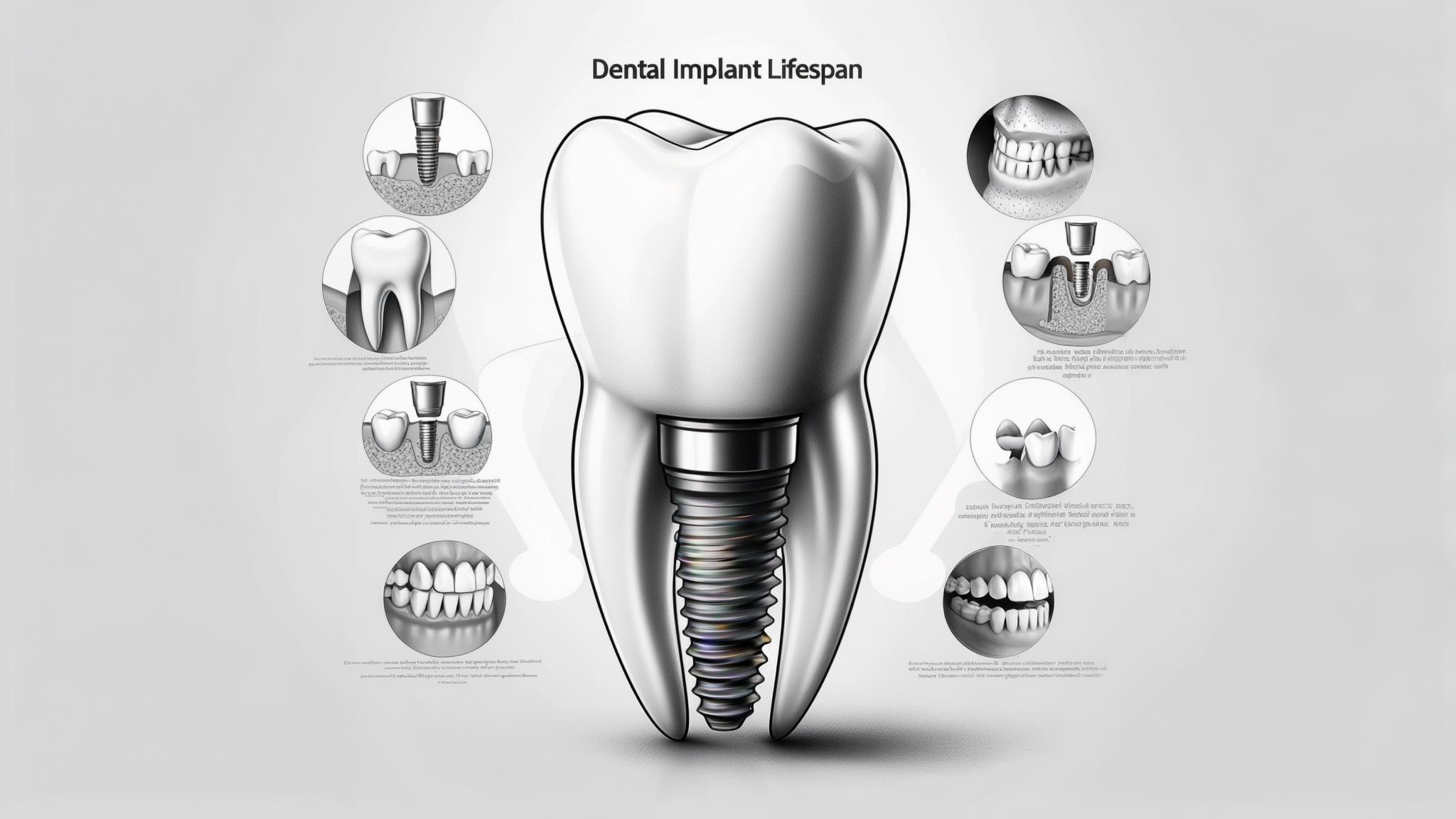Introduction
Dental implants have become a popular solution for replacing missing teeth, offering both functionality and aesthetics. But what exactly are dental implants? Simply put, a dental implant is a small titanium post that acts as a replacement root for a missing tooth. Understanding how long these implants last is crucial for anyone considering this dental procedure. This article aims to explore the durability of dental implants and what you can do to ensure they last as long as possible.
Overview of Dental Implants
Dental implants are composed of three main components:
- Implant Post: This is the titanium or zirconia screw that is surgically placed into the jawbone. It serves as the root of the new tooth.
- Abutment: A connector placed on top of the implant post to hold and support a crown.
- Crown: The visible part of the tooth that is custom-made to match your natural teeth.
There are two primary types of dental implants:
- Endosteal Implants: These are the most common type, placed directly into the jawbone.
- Subperiosteal Implants: These are placed under the gum but on, or above, the jawbone. They are used for patients who cannot wear conventional dentures and have minimal bone height.
The dental implant procedure typically involves a series of steps, including the initial consultation, surgical placement of the implant, healing period, and finally, the placement of the crown.
Factors Influencing the Longevity of Dental Implants
Several factors can affect how long your dental implants last:
- Quality of the Implant Material: Titanium is the most commonly used material due to its strength and compatibility with body tissues, but zirconia is also an option for those with metal sensitivities.
- Surgical Technique and Expertise: The skill and experience of the dentist performing the implant surgery play a significant role in the success and longevity of the implant.
- Patient’s Oral Health: Healthy gums and adequate bone density are critical for the stability of the implant.
- Lifestyle Factors: Smoking, poor diet, and inadequate oral hygiene can all negatively impact the lifespan of dental implants.
Average Lifespan of Dental Implants
On average, dental implants can last anywhere from 10 to 30 years, with many lasting a lifetime when properly cared for. Endosteal implants tend to have a longer lifespan compared to subperiosteal implants due to their direct integration with the jawbone. However, factors such as poor oral hygiene or medical conditions like diabetes can lead to implant failure.
Maintenance of Dental Implants
Proper maintenance is key to prolonging the life of your dental implants:
- Regular Dental Check-Ups: Visiting your dentist regularly can help catch any potential issues before they become serious problems.
- Daily Oral Hygiene Practices: Brushing twice a day and flossing around your implants are essential. Consider using interdental brushes or water flossers for better cleaning.
- Lifestyle Modifications: Adopting a balanced diet rich in nutrients and avoiding harmful habits like smoking or grinding your teeth can enhance the durability of your implants.
Signs of Potential Problems with Dental Implants
It's important to recognize signs that might indicate implant complications:
- Pain or Discomfort: Persistent pain may signal an underlying issue.
- Swelling and Inflammation: These symptoms could indicate infection.
- Mobility of the Implant: If the implant feels loose, it’s crucial to see your dentist immediately.
Seeking timely dental care can prevent further complications and ensure your implants remain functional.
Conclusion
Dental implants can offer a long-lasting solution for missing teeth, but their longevity depends on several factors, including proper care and maintenance. By prioritizing oral health and making informed lifestyle choices, you can maximize the lifespan of your implants. Ultimately, dental implants not only restore your smile but also boost your confidence and quality of life.
References
- American Dental Association
- National Institute of Dental and Craniofacial Research
- "Dental Implants: A Comprehensive Review" - Journal of Dental Research
For further reading, consider exploring the above resources to deepen your understanding of dental implants and their longevity.

